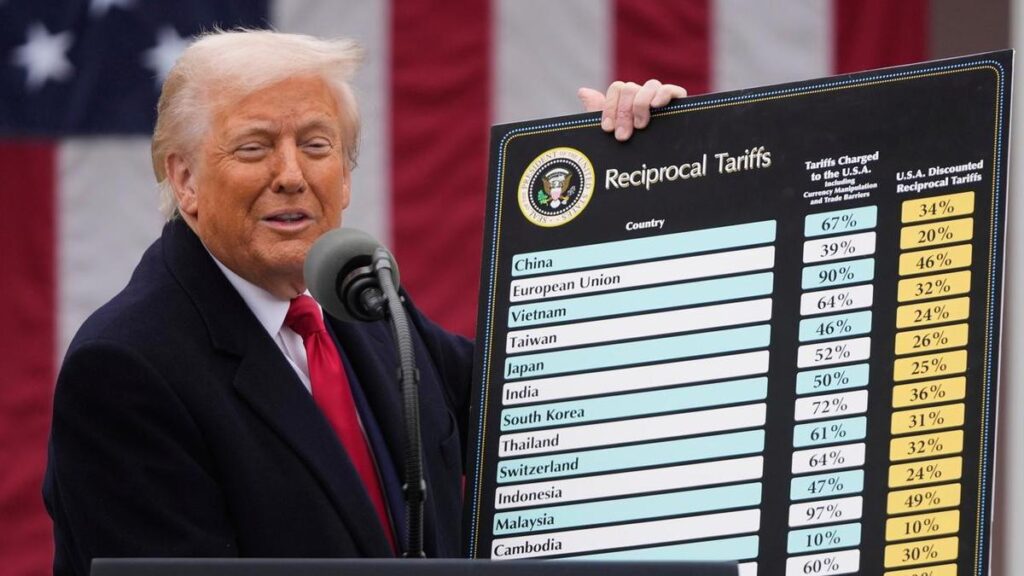
UPDATE: The US Supreme Court is set to hear critical arguments today, January 10, 2025, over the legality of President Donald Trump‘s sweeping tariffs, a case that could reshape the global economy. This urgent examination marks a significant test of Trump’s executive powers, with implications reaching far beyond US borders.
The arguments, commencing at 10:00 AM EST, come after lower courts ruled that Trump’s unprecedented use of the International Emergency Economic Powers Act (IEEPA) to impose these tariffs exceeded his authority. The case follows three lawsuits from businesses impacted by the tariffs and 12 US states, primarily led by Democrats, challenging the legality of these measures.
Trump has intensified pressure on the Supreme Court, which holds a 6-3 conservative majority, urging justices to uphold tariffs that he claims are essential to US economic and foreign policy. These tariffs, which act as taxes on imported goods, could potentially generate $89 billion in government revenue over the next decade.
In a dramatic social media post on January 7, 2025, Trump warned, “If the justices struck them down, we would be defenseless, leading perhaps even to the ruination of our Nation.” His comments underline the high stakes involved in this legal battle.
Treasury Secretary Scott Bessent is expected to attend today’s arguments, underscoring the administration’s commitment to defending these tariffs. Bessent indicated that if the Supreme Court rules against Trump, the tariffs could remain in place as the administration pivots to alternative legal frameworks.
The Court will closely evaluate Trump’s invocation of the IEEPA, a law that permits a president to regulate commerce during a national emergency. Notably, this law does not explicitly mention tariffs, making the current challenge particularly complex. Trump is the first president to utilize the IEEPA in this manner, pushing the boundaries of executive authority amid a range of controversial policies.
Historically, the US Constitution allocates the power to impose taxes and tariffs to Congress—not the president. Trump’s Justice Department argues that the IEEPA empowers the president to regulate imports to address emergencies, a stance that has raised eyebrows among legal scholars and critics alike.
The ongoing tariffs have incited a global trade war, leading to increased volatility in financial markets and heightened economic uncertainty worldwide. By targeting imports from various countries, Trump aims to address what he perceives as a national emergency related to trade deficits, while also leveraging economic pressure on nations like China and Canada to combat illicit drug trafficking.
This case is unprecedented, as it is the first time the Court will consider the legal merits of one of Trump’s policies in 2025. The justices have previously issued emergency rulings that allowed Trump’s policies to proceed despite lower court challenges, which has raised concerns about their role as a check on presidential power.
As the Supreme Court prepares to hear these arguments, all eyes will be on the justices and their forthcoming decision. The ruling could have far-reaching consequences, both for US trade policy and the global economy. Stay tuned for updates as this critical legal battle unfolds.






